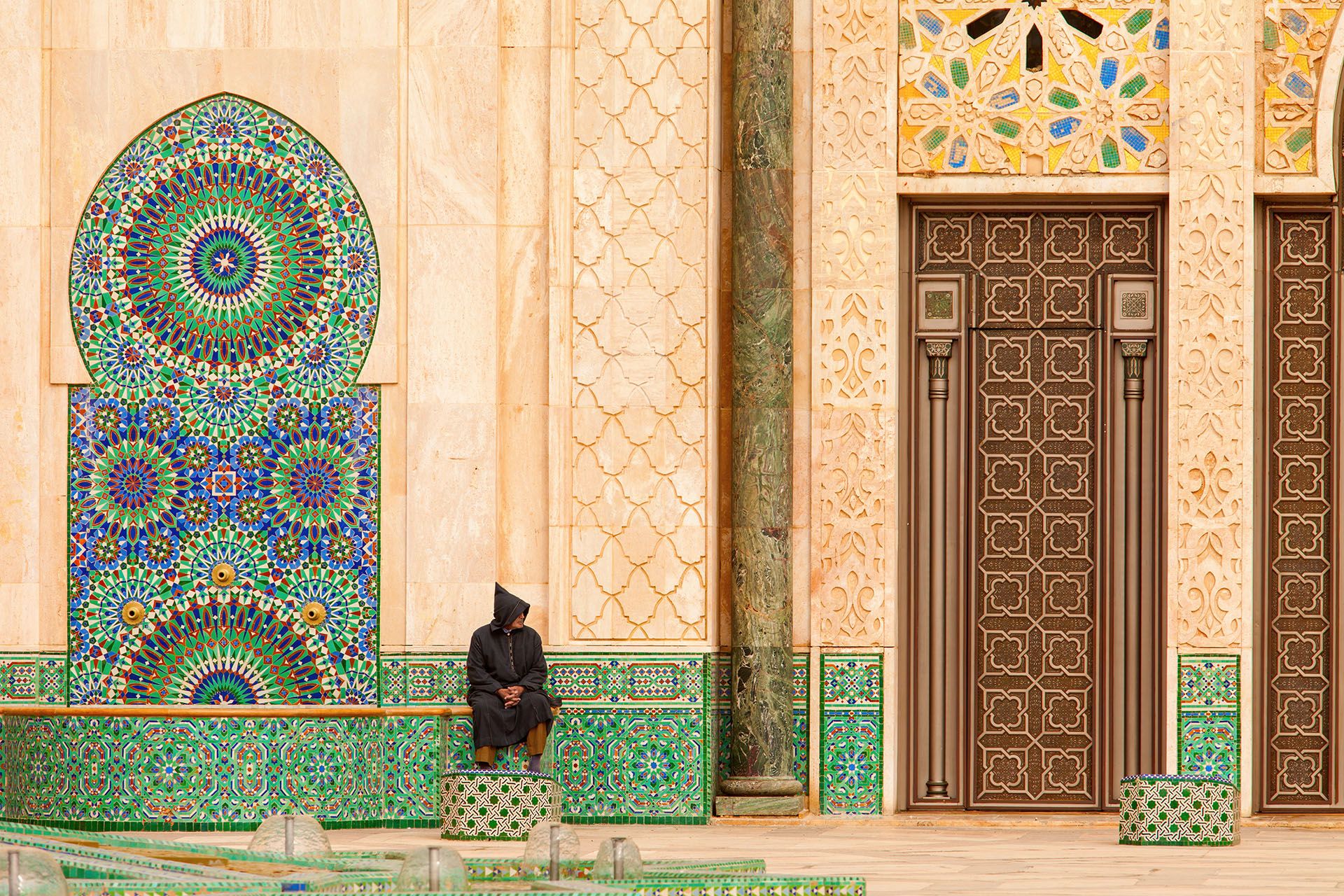Travel advice for Morocco
From travel safety to visa requirements, discover the best tips for visiting Morocco
Book your individual trip, stress-free with local travel experts
While Morocco is generally safe for travelers, it’s always important to be proactive about health. With that in mind, read on for our essential travel health tips for Morocco to help you make the most of your trip, whether you’re planning to enjoy the best weekend in Marrakech, or fancy discovering Chefchaouen, Morocco’s best kept secret.
When it comes to figuring out how to plan a trip to Morocco, you’re most likely wondering whether you need to get any vaccines ahead of your trip.
While no vaccines are legally required to enter Morocco, while planning your Morocco itinerary, you might want to consult a health professional to discuss whether you should get the following:
Editor’s tip: for more practical information beyond health matters, read our Morocco travel advice.

Heeding our travel health tips for Morocco will make your trip all the more rewarding © Shutterstock
Here’s a handy pre-travel health checklist of what to pack, and what to consider ahead of your trip, to help you enjoy a stress-free trip to Morocco.
Good news — Morocco is malaria-free since 2010, which means the risks are very, very low, and there’s also a very low risk of dengue and chikungunya.
As a precaution, and to avoid discomfort, use insect repellent on exposed skin, sleep under mosquito nets where possible, and wear long sleeves and trousers in rural or humid areas, especially at dusk.

Koutoubia mosque, Marrakech, Morocco © Migel/Shutterstock
Here are more tips for staying healthy in Morocco.
First, up some seasonal considerations, that will vary in accordance with when you decide is the best time to visit Morocco, depending on your travel preferences, budget and interests.
Note that heatstroke and dehydration risks are higher in summer (June–September), especially inland (Marrakech, Sahara). So, be sure to drink plenty of bottled water and avoid intense midday sun.
In addition, mosquitoes are more common in humid areas (like the north, near Tangier or Chefchaouen) on late spring and summer.
Only drink bottled or filtered water, and avoid ice unless you’re 100 % certain it’s made from bottled water.
While Morocco is a wonderful destination for foodies, especially if you visit Fez, Morocco’s new culinary capital, it’s wise to only eat freshly cooked hot food, and to be cautious with salads and uncooked foods unless you trust the hygiene standards, even when visiting the best souks of Marrakech, for example.
On the subject of souks, wise up on the best markets in Morocco ahead of your trip.
If you’re planning to go trekking in Morocco, for example in the Atlas Mountains or desert, you should always hire a reputable guide, and carry sufficient water and a basic first aid kit.
Snakes and scorpions are found in desert areas, so always wear closed shoes while hiking. Also note that stray dogs and cats may carry rabies — avoid petting them, no matter how friendly they might seem.
When it comes to getting around Morocco, it’s worth being aware that it can be a bit of an adventure, especially if you opt to rent a car.
For example, Moroccan road rules are often loosely followed and driving can be erratic, so keep your wits about you.
When walking in cities, watch for traffic, as drivers often ignore pedestrian crossings. And, when exploring busy medinas (like Marrakech), watch out for motorbikes weaving through narrow streets.

Bab Bou Jeloud gate (Blue Gate) - Fez, Maroko © Shutterstock
While medical care in Morocco is generally high quality, if you need treatment, costs can add up fast.
As a result, coming armed with travel insurance ensures you’re covered for medical emergencies, trip cancellations, and unexpected mishaps, so you can enjoy your trip with more peace of mind.
While Morocco’s public hospitals are affordable, they’re often crowded, with limited English spoken, so private clinics and hospitals — which have more English/French-speaking doctors — are recommended for travelers.
This means you need insurance to cover any medical costs, which can rack up. Here’s an overview of average costs, though they’ll vary considerably depending on what the issue is.
When choosing a plan, make sure it includes the following
We recommend Heymondo, who provide all types of traveller – from single-trippers, to long-stay digital nomads — with personal service, comprehensive cover and 24/7 support.

Blue City of Chefchaouen, Morocco © Delpixel/Shutterstock
Even with the best planning, illnesses can occur, and accidents do happen. Here’s how to get help if you need it in Morocco.

Casablanca © Shutterstock
Now you’re armed with helpful Morocco travel health tips, you can focus on deciding which of the best things to do in Morocco to include in your own Morocco itinerary.
Not keen on planning? Our local Morocco travel experts can handle every last detail of your trip, from curating your ideal itinerary through to booking your Morocco accommodation and transfers.
Insider tip: if you’re short on time, it’s perfectly possible to see stacks of top attractions on a 7 days in Morocco itinerary.
From travel safety to visa requirements, discover the best tips for visiting Morocco
Discover Morocco's most captivating stories